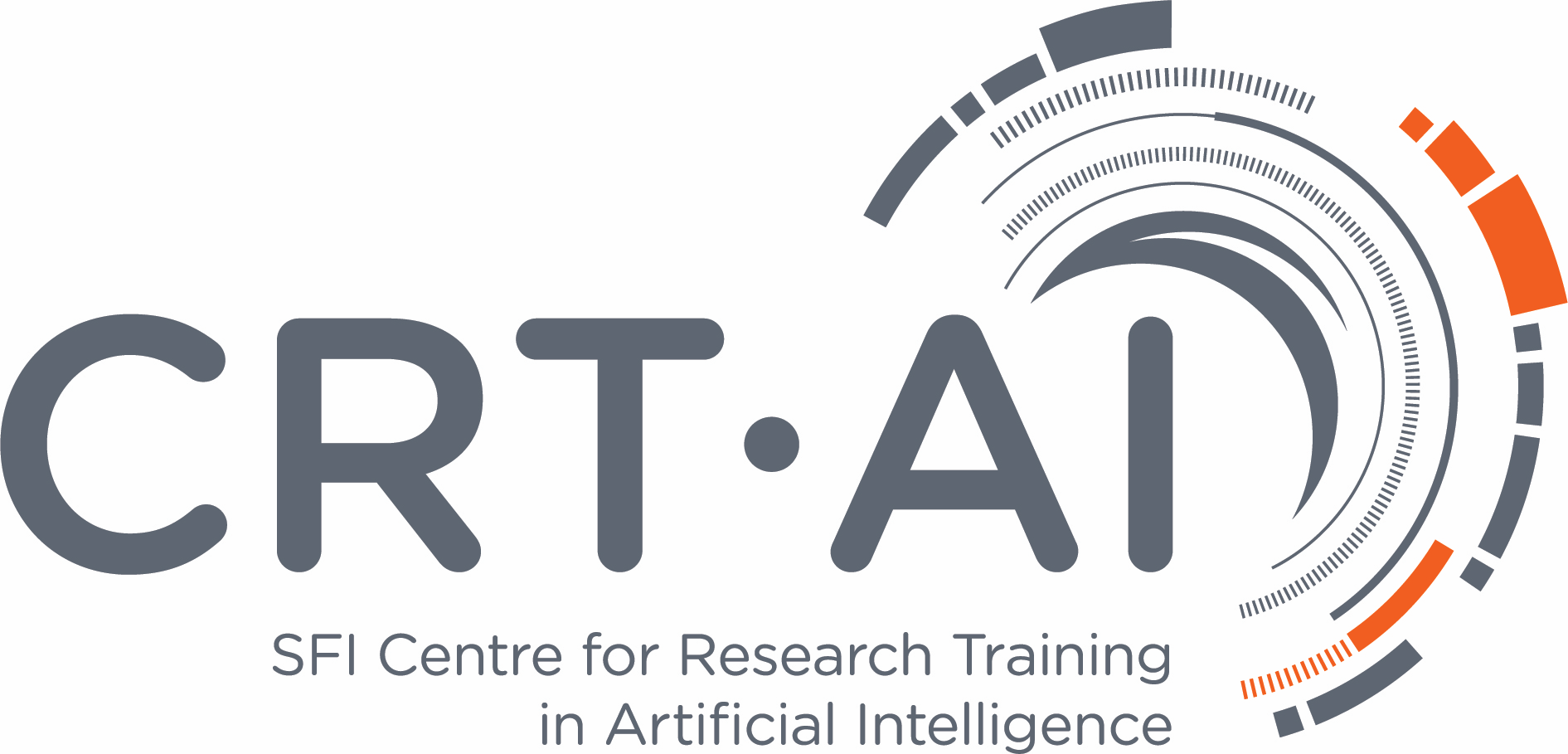Important Dates
May 3, 2024
April 24, 2024
Submission Deadline
May 10, 2024
Author Notification
May 18, 2024
Camera Ready Deadline
July 1, 2024
Workshop Date
Paper Formatting and Submission Information
CRUM 2024 accepts long papers (up to 7 pages excluding references and appendices).
In line with UMAP 2024's content expectation, papers should aim to report on original contributions in the field of the understanding and representation of context as well as the use of contextual information within the framework of user modeling, adaptive agents, personalization, and intelligent systems. Papers showcasing innovation within explainability and vulnerability analysis in agents which process and use contextual information are welcome.
Evaluations of proposed applications must be commensurate with the claims made in the paper. Depending on the intended contribution, this may include simulation stidies, offline evaluation, A/B tests, controlled user experiments, or human evalution, which is subject to ACM guidelines involving human participants.
Research procedures and technical methods should be presented in sufficient detail to ensure scrutiny and reproducibility. We recognize that user data may be proprietary or confidential, but we encourage the sharing of (anonymized, cleaned) data sets, data collection procedures, and code. Results should be clearly communicated and implications of the contributions/findings for UMAP and beyond should be explicitly discussed.
CRUM 2024 accepts provocation/opinion papers (up to 2 pages excluding references and appendices).
Provocation and opinion papers are meant to challenge the status quo and present novel, radical, or alternative methods of understanding and representing context as well as the use of contextual information within the framework of user modeling, adaptive agents, personalization, and intelligent systems. Papers showcasing innovation within explainability and vulnerability analysis in agents which process and use contextual information are welcome.
Authors are asked to provide a clear and concise argument for their position and claims alongwith preliminary evidentiary support, if possible. Authors are also encouraged to provide an analysis of the implications of their position for UMAP and beyond. Provocation pieces should consider aspects of viability, desirability, and feasibility of the proposed ideas.
Challenges and limitations of the proposed ideas should also be discussed in sufficient detail. We encourage new perspectives and analyses of existing limitations within the field, as well as the identification of novel challenges. Additionally, thought-provoking alternative viewpoints and perspectives on the future of human-centric context are also welcome.
All submissions to the workshop should use the same ACM template (single-column format) and formatting adopted by the main UMAP conference. The templates and instructions are available here.
We encourage authors to submit works in progress, negative results, insights, position papers, as well as case studies on context and its role in user modeling and adaptive systems.
CRUM follows a rigorous double-blind peer review policy. Please ensure that all workshop submissions are anonymized.
CRUM 2024 has no dual submission policy, and works previously published elsewhere should not be submitted. Submitted manuscripts should also not currently be under review at another publication venue. ACM's publication policy is detailed below:
- "By submitting your article to an ACM Publication, you are hereby acknowledging that you and your co-authors are subject to all ACM Publications Policies, including ACM's new Publications Policy on Research Involving Human Participants and Subjects. Alleged violations of this policy or any ACM Publications Policy will be investigated by ACM and may result in a full retraction of your paper, in addition to other potential penalties, as per ACM Publications Policy.”
- "Please ensure that you and your co-authors obtain an ORCID ID, so you can complete the publishing process for your accepted paper. ACM has been involved in ORCID from the start and we have recently made a commitment to collect ORCID IDs from all of our published authors. The collection process has started and will roll out as a requirement throughout 2022. We are committed to improve author discoverability, ensure proper attribution and contribute to ongoing community efforts around name normalization; your ORCID ID will help in these efforts."
Submit Your Work!
Papers will be submitted through EasyChair, selecting the track associated with Context Representation in User Modeling.
Keynote Speakers
Opening Keynote
Unraveling the context of context
Talk Abstract
We are increasingly developing sophisticated systems which are aware of the context that they are used in, and intelligently adapt their behavior to this context. This keynote delves into the essence of 'context', acknowledging its diverse conceptualizations in literature, ranging from 'any information' to a few categories. Despite acknowledging that the relevance of context is domain-specific, it often remains unclear what is relevant specifically.
Technically, context representations aim to objectively capture measurable context elements. However, practical significance often lies at a different abstraction level, where a context element's relevance and meaning may shift based on how other context elements manifest. For instance, spacial coordinates have no immediate connection with the real word; their relevance and meaning are defined by what is there else. An individual's (past) experience further complicates relevance: Is it an arbitrary house or is the one where you grew up? Do you currently live there? It context could become more intricate if a stranger enters that house.
In this keynote address, I will embrace the subtleties of context, emphasizing that the compound of context elements matters, and underscoring that objective context representations may often only serve as proxies for truly significant experienced context.
Speaker Bio
Christine Bauer is EXDIGIT Professor of Interactive Intelligent Systems at the Department of Artificial Intelligence and Human Interfaces (AIHI) at the Paris Lodron University Salzburg, Austria.
Her research centers on interactive intelligent systems, where she integrates research on intelligent technologies, the interaction of humans with intelligent systems, and their interplay. Central themes in her research are context and context-adaptivity. In recent years, she worked on context-aware recommender systems in the music and media domains. The core interests in her research activities are fairness and multi-method evaluations. She has authored more than 100 papers and holds several best paper awards and many awards for her reviewing activities. She is on the Editorial Boards of ACM Transactions on Recommender Systems (TORS) and ACM Transactions on Information Systems (TOIS). Further, she is co-organizer of the Workshop series "Perspectives on the Evaluation of Recommender Systems (PERSPECTIVES)" at RecSys 2021-2023. Further information can be found here.
Closing Keynote
To Be Announced
Speaker Bio
Judy Kay is Professor of Computer Science. She leads the Human Centred Technology Research Cluster, in the Faculty of Engineering at the University of Sydney.
A core focus of her research has been to create infrastructures and interfaces for personalisation so that people can scrutinise and control them. She has created such systems to support people in lifelong, life-wide learning. This ranges from formal education settings to supporting people in using their long-term ubicomp data to support self-monitoring, reflection and planning and includes medical contexts such as learning communication skills in medical settings. She has integrated this into new forms of interaction including virtual reality, surface computing, wearables and ambient displays. Her research has been commercialised and deployed and she has extensive publications in leading venues for research in user modelling, AIED, human computer interaction and ubicomp. She has held leadership roles in top conferences in these areas and is Editor-in-Chief of the IJAIED, International Journal of Artificial Intelligence in Education (IJAIED), recent Editor and now Advisory Board member of IMWUT, Interactive Mobile Wearable and Ubiquitous Technology (IMWUT) and Advisory Board member of ACM Transactions on Interactive Intelligent Systems TiiS).
Organizers and Program Committee
Workshop Chairs
Workshop Organizing Committee

Dipto Barman
Trinity College Dublin

Jovan Jeromela
Trinity College Dublin

Alok Debnath
Trinity College Dublin

Anouk van Kasteren
Utrecht University

Marloes Vredenborg
Utrecht University
Program Committee
- Peter Knees, Technische Universität Wien
- Hanna J. Hauptmann, Utrecht University
- Ivana Dusparic, Trinity College Dublin
- Gabriele Civitares, Università degli Studi di Milano
- Moshe Unger, Tel Aviv University
- Jeffrey Sardina, Trinity College Dublin
- Eelco Herder, Utrecht University
- Prakash Jamakatel, Universität der Bundeswehr München
- Piek Th.J.M. Vossen, Vrije Universiteit Amsterdam
- Selene Baez Santamaria, Vrije Universiteit Amsterdam
- Yong Zheng, Illinois Tech
- Tsvi Kuflik, University of Haifa
- Jasmina Gajčin, Trinity College Dublin
- Anind K. Dey, University of Washington
- Christine Bauer, Paris Lodron University Salzburg
- David Millard, University of Southampton
- Marko Tkalčič, University of Primorska
- Amra Delić, Univerzitet u Sarajevu
- Samuel Rhys Cox, National University of Singapore
- Joel Wester, Aalborg Universitet
- Andreas Brännström, Umeå Universitet
- Julia Neidhardt, Technische Universität Wien
- Francesco Barile, Maastricht University
- Rachid Alami, LAAS, CNRS
- Justin Edwards, University of Oulu
Sponsors




Contact Us
Event Location
Campus Sant’Ignazio (St. Ignatius Campus)
Via Sant’Ignazio da Laconi,
76, Cagliari, Sardinia (Italy)
Contact Details
Email address: crum.workshop@gmail.com
Twitter: https://twitter.com/CrumWorkshop


